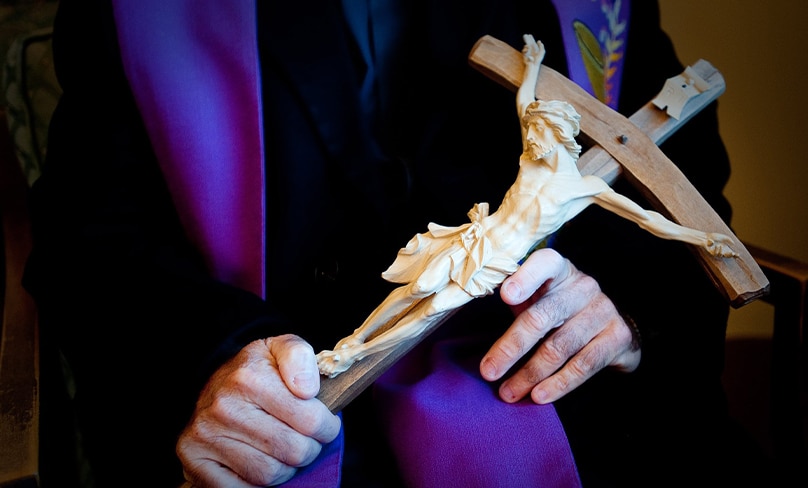
Dear Father, the son of a friend seems to have had some form of demonic influence, but probably not possession. Are there any other ways in which the devil can attack us?
The most common form of diabolical attack, which affects all of us, is temptation to sin. This does not mean that the devil is constantly hovering around us, trying to lead us into sin.
Indeed, Catholic tradition speaks of temptations arising from three sources: the world, the flesh and the devil.
But in subtle ways the devil makes use of our fallen nature, with its inclination to sin, and outside influences to entice us to disobey God and fall into sin.
In the Our Father, we pray: “Lead us not into temptation.” Naturally, God will never lead us into temptation, although he does allow us to be tempted, so that we can reject the temptations and show him that we love him.
The catechism explains that the Greek word for “lead” means both, “‘do not allow us to enter into temptation’ and ‘do not let us yield to temptation’… We ask him not to allow us to take the way that leads to sin” (CCC 2846).
And when we say “and deliver us from evil,” the catechism makes clear that we are not talking about evil as an abstraction, but rather about “a person, Satan, the Evil One, the angel who opposes God” (CCC 2851).
Pope Francis, in an interview in the Italian book Esorcisti Contro Satana (“Exorcists against Satan”), published in April 2023, said: “What is certain is that the devil tries to attack everyone without distinction and tries above all to strike those who have more responsibilities in the church or in society.”
And in his angelus address on the first Sunday of Lent 2023, the pope warned of three temptations that the devil uses to separate us from God and divide us from each other: attachment to material things, mistrust, and the thirst for power.
They are “three widespread and dangerous temptations that the devil uses to divide us from the Father and to make us no longer feel like brothers and sisters among ourselves, to lead us to solitude and desperation.”
Apart from temptation, the most well-known form of diabolical activity is possession, popularised by horror films like The Exorcist (1973).

Here at least part of the person’s faculties are under the control of the evil spirit, so that they will speak with a voice which is not theirs, or they may act with superhuman strength and do things they would never do normally, like blaspheme against God or Our Lady.
St Mark relates the case of the Gerasene demoniac who lived in the tombs, howling and cutting himself with stones and, when bound with chains, would break the chains in pieces, so that no one could subdue him. (cf. Mark 5:1-20). It is especially those who are possessed who need an exorcist to cast out the demons.
Another form of diabolical activity is oppression, or obsession. Whereas temptation usually comes from some outside influence which the person can resist, oppression can also come from outside but it weighs so heavily upon the person that it greatly weakens their ability to resist.
It can also affect their property. In the Old Testament, Job was not possessed but the devil oppressed him when his children, his servants and his animals were killed, and he was left covered with sores (cf. Job 1-2).
Among the forms of oppression are the various addictions: alcohol, gambling, pornography, computer gaming, recreational drugs, etc. While we can never say that the devil is the only cause of the addiction, he is certainly interested in fostering it, since it takes the person away from his or her true self, and often away from God.
Among the forms of oppression are also such debilitating dispositions as grave fear, bitterness, hatred, irrational jealousy, discord, sadness, pride, lust, envy, greed, selfishness, unforgiveness, the feeling of being rejected, depression, etc. The list is practically endless.
These dispositions can be caused by evil spirits. Often people trained in the deliverance ministry are able to help free the affected people from these spirits.
Among the steps recommended when people are suffering from the bondage of oppression are repentance of their sins and a good confession; forgiveness of anyone who has hurt them; a determined renunciation of the spirit associated with the bad habit or disposition; and, of course, recourse to God and Our Lady in a spirit of humility and prayer.
